A Towel warmer or heated towel rail is a bathroom item that warms and dries your towel while also providing heating to a room. Does a towel warmer need to be connected to the central heating system? How does a towel warmer work?
Towel warmers work by radiating heat. The heating element in the towel warmer heats ups and the heat is transferred to the towel. The towel warmer usually contains pipes with running hot water, radiating heat like a radiator, to allow towels to warm up and dry.
We will dive into details on how the towel warmer actually works, the various types, and their efficiency. To find out if this device is worth it in the long run, keep reading!
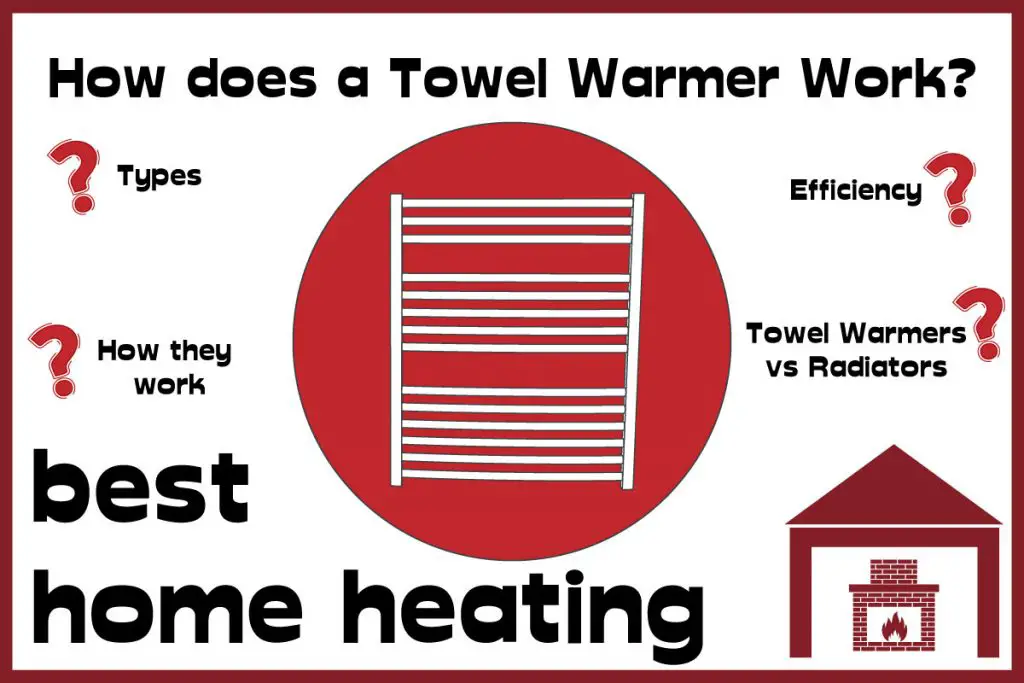
What is a Towel Warmer?
Simply said, a towel warmer also known as a heated towel rack is a bathroom item that both heats and dries your towel while also providing radiant heat to a room.
A towel warmer has a wide range of applications and advantages. They are used to heat towels or bathrobes so that the user may dry off after a shower or leave the pool, beach, or spa with a warm towel and/or bathrobe.
The towel warmer will dry a towel after it has been used, decreasing laundry loads and water usage because the towels will not need to be washed as frequently. It will help keep the towels from smelling musty or moldy, which can happen if they aren’t dried correctly.
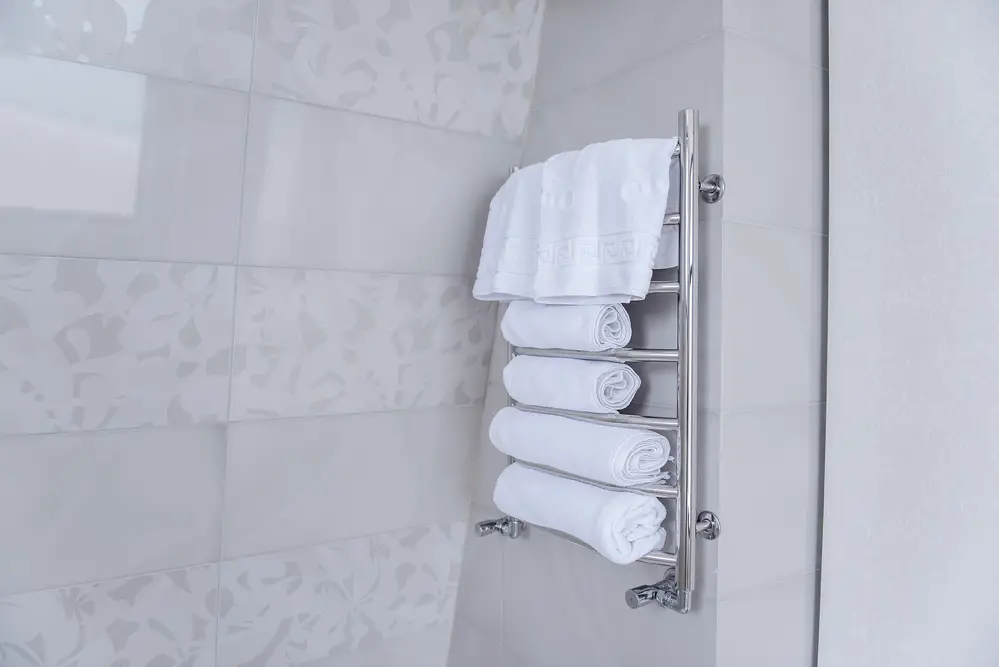
Types of Towel warmers
The types of towel warmers below are classified, based on how they work. They include the following:
Towel Warmer/Radiator Combination
This towel warmer may take the place of your old, cumbersome radiator, saving up valuable floor space. The radiator towel warmer, like the heating radiator, is connected to the hot water supply. The hot water circulates via a central radiator panel and all of the towel warmer’s horizontal racks. It operates continually, ensuring mold and mildew-free drying and warming of your towels.
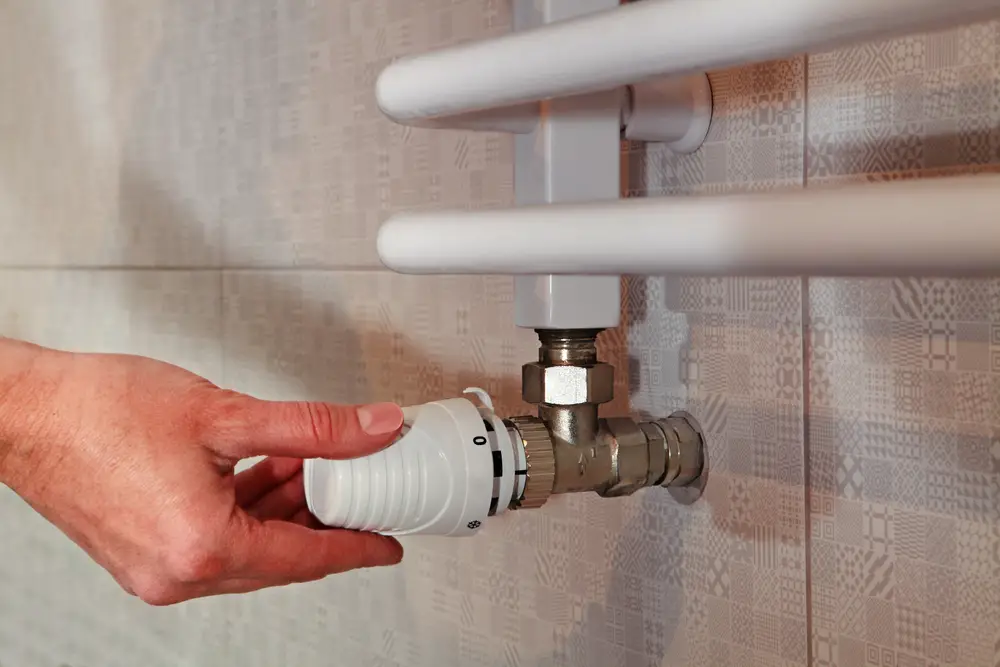
Electric Towel Warmer (Wired)
This sort of electric towel warmer is wired directly into your home’s electrical system. It features a switch that allows you to turn it on and off. Other types have a programmable timer that may be set for a specific amount of hours or a specific time each day. Internal coils heat the warmer rails to temperatures of up to 140°F (55°C). Some types have a rail that is 90 degrees to the vertical supports, while others have bent rails to accommodate thick bath sheets.
Electric Towel Warmer (Plugged in)
Electric towel warmers are the most basic. It’s simple to put up and maybe hung near an electrical outlet from studs in the wall. To turn it on, just plug it in and disconnect it. They’re great for placing at cottages where they’ll be utilized seasonally but not daily basis, or where they’ll be used all year.
Towel Warmers with Hydronic Heating
The energy in hydronic towel warmers heats a thick gel fluid inside the hanging racks, which warms and dries towels. Cooler gel flows to the bottom, while warmed gel rises and flows to the top through the horizontal bars, aided by a tiny pump built into the wall.
Warming Towels with an Overhead Rack
This function is available on the radiator, hydronic, and electric towel warmers. Washcloths, lingerie, and other small hand-washed items can be dried directly on the overhead rails, or damp things can be hung to dry on hangers. Ascertain that the towel rack supports are firmly fastened to the wall studs.
Towel ovens
The thermostatically regulated tiny towel oven keeps pre-moistened towels warm at a consistent temperature ranging from 158° F (70° C) to 176° (80° C) depending on the ambient temperature. Various factors such as the number, condition, and kind of towel determine the Warm-up time. These ovens are typically compact and may be stored on a bathroom rack.
Types of Towel warmers based on how they are mounted
It is entirely up to you how you mount your towel warmer. Depending on the layout of your bathroom and your personal preferences, you can choose between wall-mounted, floor-mounted, and freestanding towel warmers.
- Freestanding is the most versatile option. Choose a freestanding model if you want to be able to move it around the bathroom or from room to room (or even outside!).
- Wall-mounting is ideal for saving floor space. For bathrooms with limited wall space, corner mounts are available.
- Floor-mounting is ideal for freestanding tubs and uneven walls (such as those that are tiled partway). Be careful when children are around as they could burn their hands on a low-lying hot towel rail, just like a radiator.
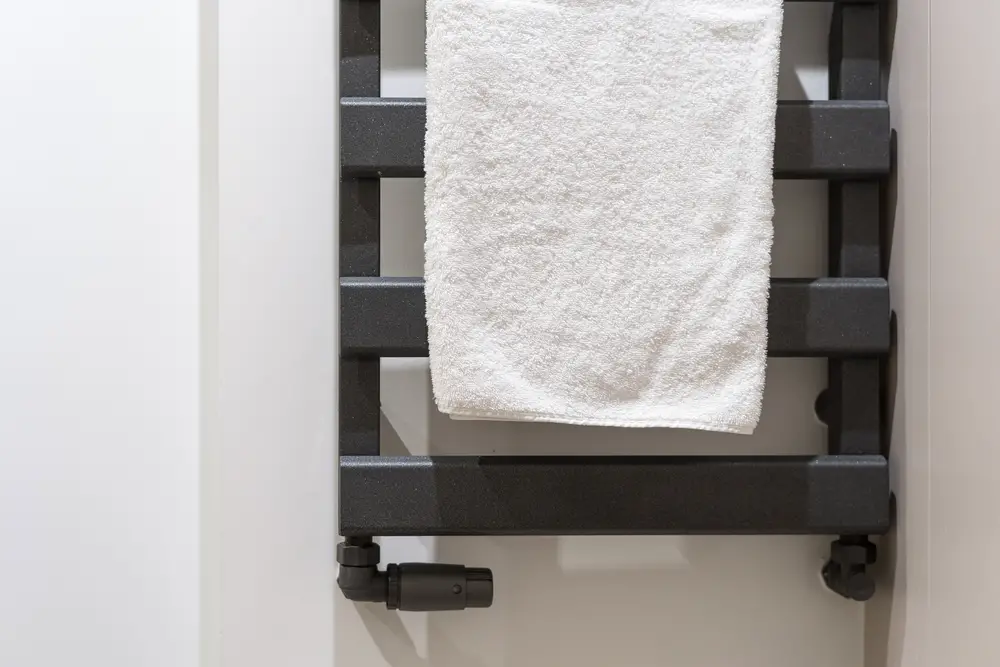
How does a Towel warmer work?
The two primary types of towel warmers are hydronic and electric, which are governed by the type of installation.
A hydronic towel warmer, like a radiator, uses hot water to create heat. To deliver uniform, energy-efficient heat, water from the existing hot water or radiant heat system passes through the rails of the warmer. (On some types, an internal heating element heats a mixture of water and other chemicals such as glycol to warm the bars.)
Radiators vs Towel warmers
While both towel warmers and radiators emit heat, towel warmers typically emit less heat due to their smaller surface area. However, if the bathroom is small or medium in size, a heated towel rail in the proper proportions should be enough to heat the area.
Of course, it should be noted that a towel rail is typically a more appealing alternative to a standard radiator. Especially when you consider the variety of interesting finishes offered by Rutland Radiators.
Furthermore, because their design is primarily based on tubing, towel rails can be less overbearing in smaller bathrooms and make a room feel larger than if you used an alternative radiator.
Are Towel Warmers worth it? How efficient are they?
Cost
If the advantages of a towel warmer pique your interest, you may be wondering how much they cost. A towel warmer costs between $149 and $499, depending on the style.
Because the units consume very little energy, they typically cost only pennies per day to operate. The cost of operation is approximately a few cents per day based on the average electricity rate, but the cost will vary depending on the price of electricity in your area.
Efficiency
Electric and hydronic towel warmers, when used properly, can be energy-efficient heat sources for your bathroom. The advantage of using an electric towel warmer is that it does not use the rest of your heating system: your towel warmer will operate independently of your boiler system and will use electric wire heating to keep your towels warm.
Electric towel warmers are great for warm fluffy towels, but if you need a secondary heating source in your bathroom, a liquid-filled towel warmer can reach temperatures ranging from 45°C to 55°C in just 20-40 minutes.
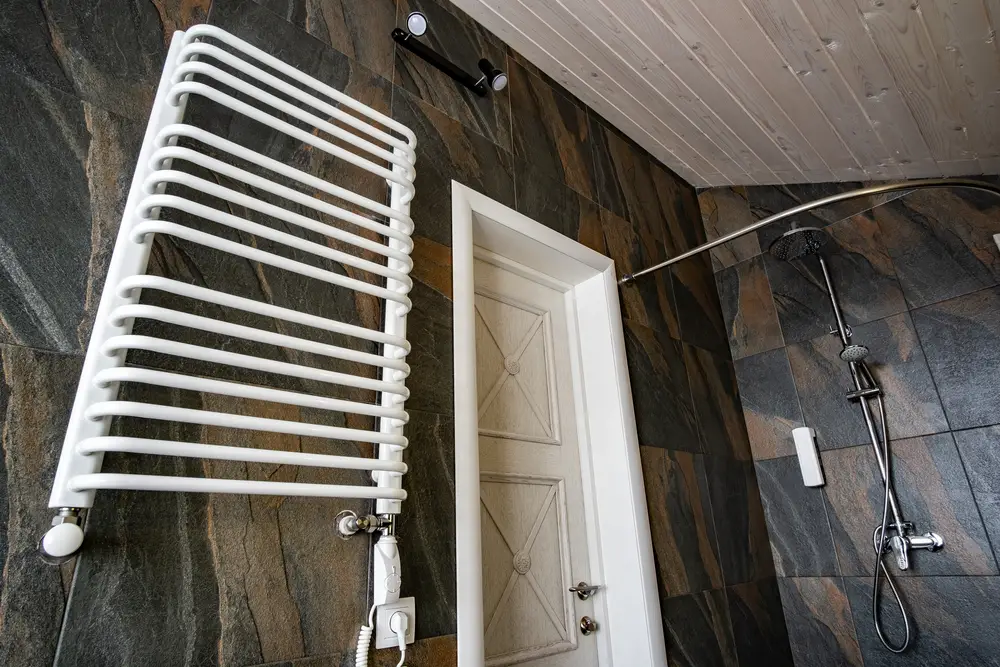
Other Towel Warming options
Towel radiators
Bathroom radiators are available in a variety of styles, including ladder types, racks, wall-mounted, floor-mounted, and those that can be used in kitchens. You can place towels directly onto radiators in the bathroom or other rooms in the house, though note there is a risk of the towel material becoming too hot. Fire risk is not negligible here.
Hot Air Circulation Drying Cabinet
The hot air circulating cabinet drying machine is an extremely versatile piece of drying equipment.
Their appearance is typically that of a small cabinet. Towels are inserted into the unit from the front via a hinged door, and power is supplied via a power cord. Some models, however, are cylindrical and allow you to place the towels from the top of the unit.
Depending on the size of the unit, you may discover a small shelf in the center of the unit that allows you to separate different items. Towels, socks, and other clothing are then warmed in this compartment.
Conclusion
The Towel warmer works on the principle of radiant heat. It is by this means it ensures there is a dry towel for use in your Bathrooms. These towel warmers come in different variants depending on how they work.
They are very efficient sources of heat and you can channel some of this heat to heat your Bathroom or other smaller rooms. Towel warmers ensure you have a dry towel for use, all day long. For this reason, they should be on your list of must-haves for your home.
Check out related articles here:


